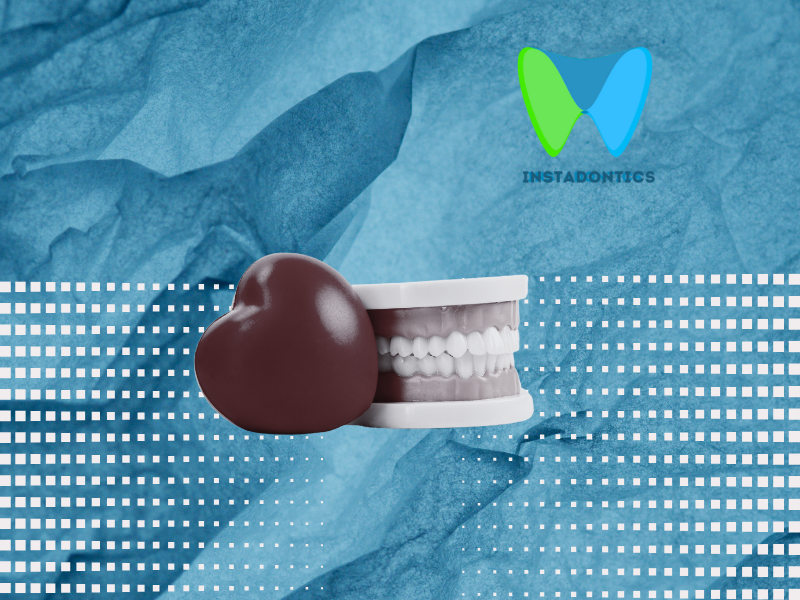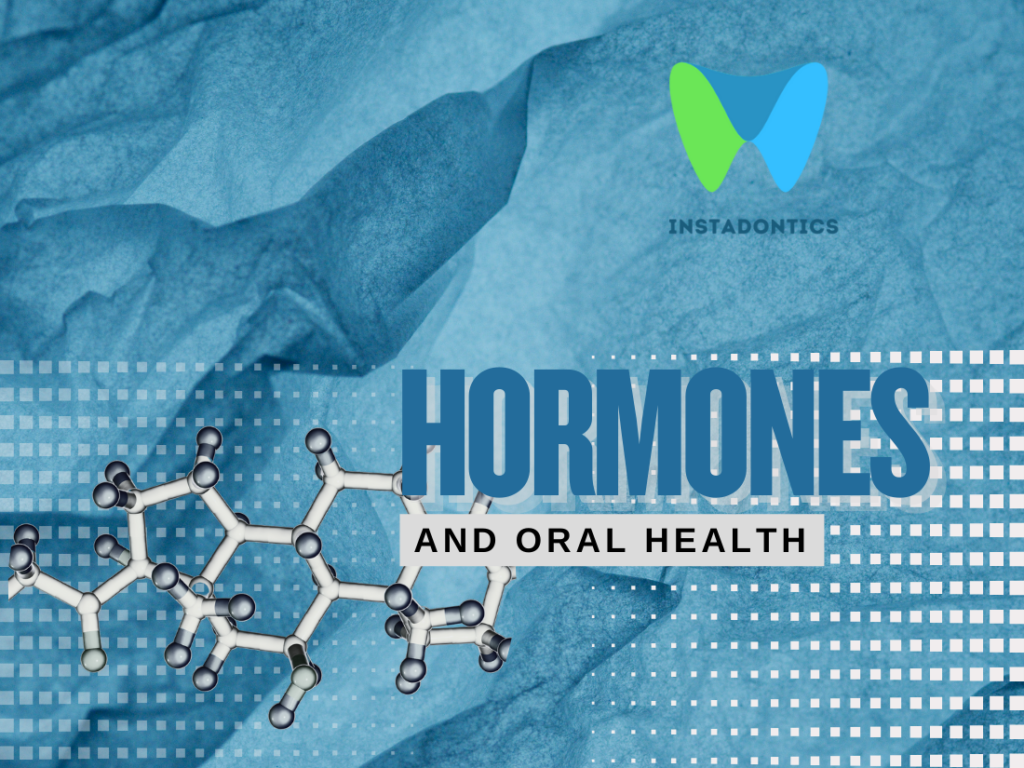Can Poor Oral Health Increase Your Risk of Dementia? When we think of brushing our teeth, most of us are focused on preventing cavities, avoiding bad breath, or keeping our smile bright. But emerging research is showing a surprising and potentially serious consequence of neglecting oral health: an increased risk of dementia.
Yes—your mouth and brain are more connected than you might think. While we’re still unraveling the full picture, studies from across the world are increasingly pointing to a link between gum disease, tooth loss, and cognitive decline.
Here’s a deep dive into what scientists are discovering—and what it means for your brain.
The Oral Health–Brain Health Connection
A Hidden Pathway: From Gums to Gray Matter
The idea that oral health can affect brain health might seem far-fetched at first. But when you think about it, it makes sense. The mouth is the entry point to your body—and a potential gateway for harmful bacteria.
One of the key culprits under investigation is Porphyromonas gingivalis, a bacteria commonly associated with gum disease. In a 2019 study published in Science Advances, researchers found that this bacteria was present in the brains of patients with Alzheimer’s disease. Even more alarming: the bacteria produced toxic enzymes known as gingipains, which were linked to brain damage and inflammation (Dominy et al., 2019).
This suggests that bacteria from the mouth may enter the bloodstream—especially when gum tissue is inflamed or bleeding—and travel to the brain, potentially accelerating the neurodegenerative processes involved in dementia.
The Role of Inflammation
Poor oral health and dementia and the role of inflammation.
Inflammation is the body’s natural defense mechanism—but when it becomes chronic, it can wreak havoc. Gum disease is essentially a chronic inflammatory condition, and long-standing inflammation has long been associated with a higher risk of Alzheimer’s and other forms of dementia.
In a 2020 review published in Journal of Alzheimer’s Disease, researchers highlighted that systemic inflammation, whether from periodontal disease, obesity, or other causes, is a consistent factor in cognitive decline. Inflammation may trigger a cascade of immune responses in the brain, leading to damage of neurons and brain tissue over time.
Moreover, chronic periodontal inflammation is known to increase levels of C-reactive protein (CRP), an inflammatory marker that’s also linked to higher dementia risk.
Tooth Loss: More Than a Cosmetic Issue
Tooth loss—especially when it results from gum disease—is another major factor associated with dementia. A 2021 meta-analysis involving over 34,000 participants found that individuals with more tooth loss had a significantly higher risk of cognitive decline and dementia (Shan et al., 2021). The risk increased with the number of teeth lost.
But why would losing teeth impact your brain? It turns out that chewing isn’t just about eating. Chewing activates multiple brain regions, and a loss of this stimulation may lead to cognitive changes. People who lose teeth may also experience changes in diet, eating fewer fruits, vegetables, and lean proteins—all of which are important for brain health.
Additionally, tooth loss may be a marker of lifetime oral hygiene and access to care. People who lose teeth earlier in life may have faced barriers to healthcare, lower education levels, or other socioeconomic factors that also increase dementia risk.
New Evidence from Long-Term Studies
Several long-term studies have followed thousands of adults over many years, adding more weight to the theory that poor oral health and cognitive decline are connected.
- The ARIC Study (Atherosclerosis Risk in Communities), one of the largest and most respected cohort studies in the U.S., found that people with severe gum disease in midlife were significantly more likely to develop dementia later on.
- A Japanese study published in BMJ Open followed older adults for over 10 years and found that those who didn’t regularly visit a dentist or who had fewer remaining teeth were more likely to be diagnosed with dementia.
These studies don’t prove causation, but they show strong and consistent associations, especially when confounding factors like age, smoking, and education are accounted for.
That Does This Mean for You?
If you’re someone who already brushes and flosses daily—great. You’re likely protecting more than just your teeth. But if oral health isn’t a priority, this growing body of research is a wake-up call, exploring poor oral health and dementia.
To manage the risk of Poor oral health and dementia here are a few actionable takeaways:
1. Treat Gum Disease Early
Bleeding gums, persistent bad breath, and loose teeth are signs of periodontal disease. If caught early, it can often be reversed with professional cleanings and better at-home care.
2. Don’t Ignore Tooth Loss
If you’re missing teeth, talk to a dentist about your options. Dentures, implants, or bridges can restore chewing function—and possibly reduce your cognitive risk.
3. Maintain Regular Dental Checkups
Seeing a dentist at least twice a year helps catch early signs of gum disease before it progresses. Professional cleanings remove plaque and tartar that brushing alone can’t.
4. Think of Oral Health as Part of Brain Health
Much like exercising, eating well, and avoiding smoking, taking care of your mouth should be part of your brain-protection routine.
What Scientists Are Still Exploring
Despite the strong correlations, it’s important to note that researchers are still uncovering exactly how and why oral health impacts dementia.
Key questions remain:
- Are certain oral bacteria more dangerous than others?
- Can treating gum disease or improving oral hygiene actually slow cognitive decline?
- How much of the risk is due to inflammation, and how much to bacterial invasion?
Clinical trials are currently underway to test whether interventions targeting oral health could improve cognitive outcomes. In the meantime, the preventive value of oral care is becoming increasingly clear.
Oral Health and Other Dementia Risk Factors
Oral health doesn’t exist in a vacuum—it’s connected to overall health. For instance, people with diabetes are more prone to gum disease, and diabetes is also a known risk factor for dementia.
The World Health Organization (WHO) emphasizes that dementia risk is influenced by multiple modifiable factors, including:
- Hypertension
- Obesity
- Smoking
- Physical inactivity
- Poor diet
- Social isolation
- Depression
Oral health may intersect with many of these. Poor dental health can lead to dietary changes and social embarrassment, which in turn reduce nutrition and increase isolation.
A Call to Action for Aging Populations and Caregivers
Older adults are particularly vulnerable to both poor oral health and dementia. As mobility and memory decline, maintaining daily hygiene routines becomes harder. Dry mouth from medications, reduced dexterity, and limited access to care can all contribute to oral problems.
Caregivers and family members should monitor oral health alongside other aspects of well-being. Encouraging dental visits, helping with daily brushing and flossing, and providing a nutritious diet are all essential in preserving both oral and cognitive health.
FAQs: Oral Health and Dementia
- Can poor oral hygiene really affect brain health?
Yes. Research shows a growing link between poor oral hygiene—especially gum disease—and an increased risk of cognitive decline and dementia. - How does gum disease affect the brain?
Gum disease triggers chronic inflammation, which may contribute to brain inflammation. Certain bacteria like Porphyromonas gingivalis can even travel from the mouth to the brain. - What bacteria are associated with both gum disease and Alzheimer’s?
Porphyromonas gingivalis is one of the most studied bacteria. It produces toxins (gingipains) that have been found in the brains of Alzheimer’s patients. - Is there scientific evidence supporting this link?
Yes. Several studies, including long-term cohort studies and animal models, show strong associations between periodontal disease, tooth loss, and cognitive decline. - Can tooth loss increase your risk of dementia?
Yes. Multiple studies have shown that people with fewer teeth have a higher risk of memory problems and dementia, possibly due to reduced chewing, poor nutrition, or inflammation. - Is it just gum disease that’s linked to dementia—or all oral health problems?
While gum disease and tooth loss are most strongly linked, general poor oral hygiene (including cavities and infections) may contribute to systemic inflammation, which impacts brain health. - What role does inflammation play in this connection?
Chronic inflammation from gum disease may increase levels of inflammatory markers like CRP, which are also associated with Alzheimer’s and other cognitive disorders. - Can treating gum disease reduce my risk of dementia?
The evidence is still emerging. While treatment helps reduce inflammation and bacterial load, more research is needed to confirm whether it directly lowers dementia risk. - Does age affect the oral health–dementia link?
Yes. Older adults are more prone to both poor oral health and cognitive decline. Midlife gum disease may increase risk decades later. - What about people who wear dentures? Are they still at risk?
Denture wearers may experience less brain stimulation from chewing and changes in nutrition. However, proper fit and diet can help mitigate risks. - How can I protect my brain through oral care?
Brush twice daily, floss, use mouthwash, get regular dental cleanings, and treat gum disease promptly. Good oral hygiene supports overall and brain health. - Is this link proven or still under investigation?
The association is well-supported, but causation isn’t fully proven. Research is ongoing to understand the mechanisms and potential for prevention. - Can oral bacteria actually enter the brain?
Yes. Bacteria from infected gums can enter the bloodstream and cross the blood-brain barrier, especially if the barrier is weakened due to aging or disease. - Should caregivers of elderly individuals monitor oral health?
Absolutely. Oral care is often overlooked in dementia care, but it’s critical. Caregivers should assist with hygiene, ensure dental visits, and watch for signs of oral disease. - Is oral health now considered part of dementia prevention?
Increasingly, yes. Public health experts recommend oral care as a potential modifiable risk factor in dementia prevention strategies.
Final Thoughts: Your Mouth Is a Mirror to Your Mind
The connection between oral health and dementia isn’t just a theory—it’s a growing field of scientific interest that’s starting to change how we think about aging and brain health.
While brushing your teeth might seem like a small act, it could be one of the most powerful tools you have for protecting your cognitive future.
So tonight, when you reach for your toothbrush, remember: you’re not just cleaning your teeth. You’re investing in your brain.
References:
- Dominy, S. S., et al. (2019). Porphyromonas gingivalis in Alzheimer’s disease brains: Evidence for disease causation and treatment with small-molecule inhibitors. Science Advances.
- Shan, Z., et al. (2021). Tooth loss increases risk of dementia: a meta-analysis. Frontiers in Neurology.
- Kamer, A. R., et al. (2020). Periodontal disease’s contribution to Alzheimer’s pathogenesis. Journal of Alzheimer’s Disease.
- Wu, B., et al. (2021). Midlife oral health and risk of dementia later in life: Findings from the ARIC study. Journal of Gerontology.
- WHO. (2019). Risk reduction of cognitive decline and dementia: WHO guidelines.



